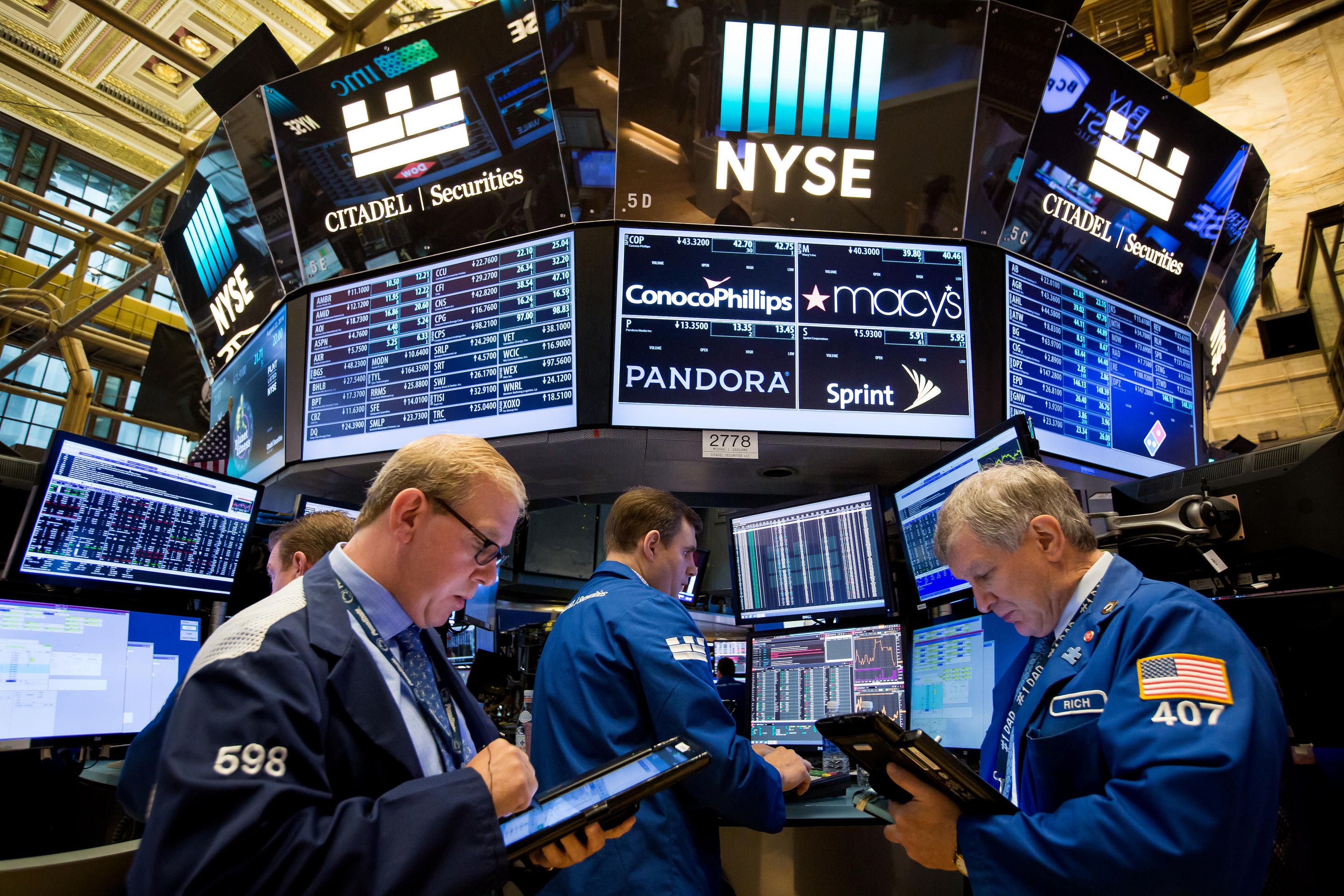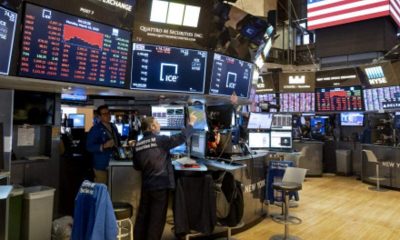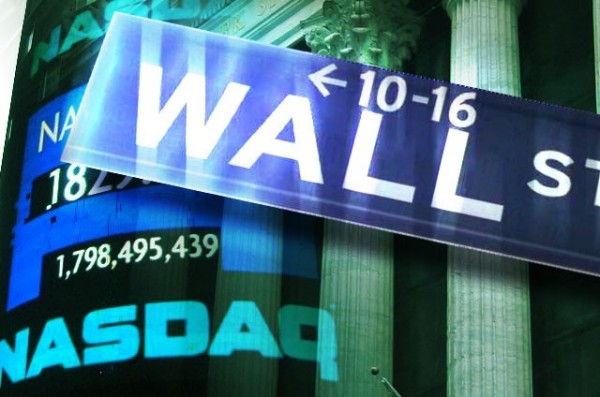Economy
US Stocks Open Sharply Lower After Fed Slashes Rates

By Investors Hub
The major U.S. index futures are currently pointing to a sharply lower open on Monday, with stocks likely to give back ground following the rally seen going into the close of trading last Friday.
Traders may look to cash in on the previous session’s gains amid escalating concerns about the economic impact of the coronavirus pandemic.
Central banks around the world, including the Federal Reserve, are taking steps to provide economic stimulus to combat the effects of the virus, but the moves may only serve to exacerbate concerns about the impact of the outbreak.
On Sunday, the Fed took the unusual step of slashing interest rates by 100 basis points just days ahead of its scheduled monetary policy meeting this week.
The Fed lowered the target range for the federal funds rate to zero to 0.25 percent from 1 to 1.25 percent, noting the coronavirus outbreak has harmed communities and disrupted economic activity in many countries, including the U.S.
The central bank said it expects to maintain this target range until it is confident that the economy has weathered recent events and is on track to achieve its maximum employment and price stability goals.
In addition to cutting rates, the Fed also announced a new quantitative easing program, revealing plans to increase its holdings of Treasury and mortgage-backed securities by at least $700 billion.
“The Fed’s decision to slash interest rates to near-zero won’t stop the economy falling into a recession, but the package of liquidity-boosting measures will help prevent credit markets seizing up, reducing the risks a deeper downturn,” said Michael Pearce, Senior U.S. Economist at Capital Economics.
He added, “We expect the Fed to do whatever it takes to keep markets functioning smoothly, and to announce further QE & forward guidance to support demand should the crisis worsen significantly.”
The drastic moves by the Fed, which come ahead of the two-day monetary policy meeting set to begin on Tuesday, have raised some concerns that central banks around the world will run out of ammunition to deal with a deepening crisis.
A day after the worst drop by the Dow in over thirty years, stocks showed a substantial move back to the upside during trading on Friday. The major averages fluctuated over the course of the session before experiencing a late-day rally.
The major averages spiked going into the close of trading, ending the session at their best levels of the day. The Dow soared 1,985.00 points or 9.4 percent to 23,185.62, the Nasdaq skyrocketed 673.00 points or 9.3 percent to 7,874.80 and the S&P 500 surged up 230.38 points or 9.3 percent to 2,711.02.
Despite the rebound on the day, the major averages moved sharply lower for the week. The Dow plummeted by 10.4 percent, while the Nasdaq and the S&P 500 plunged by 8.2 percent and 8.8 percent, respectively.
The late-day spike on Wall Street came after President Donald Trump declared the coronavirus outbreak a national emergency.
The declaration by Trump would free up as much as $50 billion in additional funding to combat the outbreak and allow officials to waive certain regulations to accelerate testing and care for coronavirus patients.
Trump said during a press conference in the White House Rose Garden that he expects the U.S. to have 1.4 million coronavirus test kits available within a week and a total of 5 million kits within the next month.
The president said he is also working with private sector companies to develop “drive thru” testing facilities across the country.
However, Trump said he does not want everybody running out and taking the test, saying only people with certain symptoms should be tested.
Adding to the positive sentiment, a coronavirus test developed by Swiss drug giant Roche has been granted emergency use authorization by the FDA.
The FDA said this is the first commercially distributed diagnostic test to receive emergency authorization during the coronavirus outbreak.
Roche said it is committed to delivering as many tests as possible and is going to the limits of its production capacity.
The emergency authorization of the Roche test comes amid rising concerns about the relatively low levels of coronavirus testing in the U.S.
In U.S. economic news, a report released by the University of Michigan showed a relatively modest deterioration in consumer sentiment in the month of March in light of the rampant fear over the coronavirus outbreak and the subsequent sell-off on Wall Street.
The report showed the consumer sentiment index slid to 95.9 in March after rising to 101.0 in February, although the index still came in above economist estimates for a reading of 95.0.
“Importantly, the initial response to the pandemic has not generated the type of economic panic among consumers that was present in the runup to the Great Recession,” said Surveys of Consumers chief economist Richard Curtin.
He added, “Nonetheless, the data suggest that additional declines in confidence are still likely to occur as the spread of the virus continues to accelerate.”
Banking stocks saw considerable strength amid a continued increase in treasury yields, with the KBW Bank Index soaring by 14.8 percent.
Substantial strength also emerged among energy stocks in late-day trading after Trump pledged to purchase oil at the currently severely reduced prices to fill the U.S. strategic petroleum reserve.
Software stocks also moved sharply higher over the course of the session, driving the Dow Jones U.S. Software Index up by 12.7 percent. The index ended the previous session at a nine-month closing low.
Oracle (ORCL) and Adobe (ADBE) posted standout gains within the software sector after reporting better than expected quarterly earnings.
Steel, semiconductor, brokerage, and transportation stocks also moved sharply higher, while gold stocks bucked the uptrend amid a steep drop by the price of the precious metal.
Economy
Champion Breweries Concludes Bullet Brand Portfolio Acquisition

By Aduragbemi Omiyale
The acquisition of the Bullet brand portfolio from Sun Mark has been completed by Champion Breweries Plc, a statement from the company confirms.
This marks a transformative milestone in the organisation’s strategic expansion into a diversified, pan-African beverage platform.
With this development, Champion Breweries now owns the Bullet brand assets, trademarks, formulations, and commercial rights globally through an asset carve-out structure.
The assets are held in a newly incorporated entity in the Netherlands, in which Champion Breweries holds a majority interest, while Vinar N.V., the majority shareholder of Sun Mark, retains a minority stake.
Bullet products are currently distributed in 14 African markets, positioning Champion Breweries to scale beyond Nigeria in the high-growth ready-to-drink (RTD) alcoholic and energy drink segments.
This expansion significantly broadens the brewer’s addressable market and strengthens its revenue base with an established, profitable portfolio that already enjoys strong brand recognition and consumer loyalty across multiple markets.
“The successful completion of our public equity raises, together with the formal close of the Bullet acquisition, marks a defining moment for Champion Breweries.
“The support we received from both existing shareholders and new investors reflects strong confidence in our long-term strategy to build a diversified, high-growth beverage platform with pan-African scale.
“Our focus now is on disciplined execution, integration, and delivering sustained value across markets,” the chairman of Champion Breweries, Mr Imo-Abasi Jacob, stated.
Through this transaction, Champion Breweries is expected to achieve enhanced foreign exchange earnings, expanded distribution leverage across African markets, integrated supply chain efficiencies, portfolio diversification into high‑growth consumer beverage categories, and strengthened presence in the RTD and energy drink segments.
The acquisition accelerates Champion Breweries’ transition from a regional brewing business to a multi-category consumer platform with continental reach.
Bullet Black is Nigeria’s leading ready-to-drink alcoholic beverage, while Bullet Blue has built a strong presence in the energy drink category across several African markets.
Economy
M-KOPA Nigeria Plans Expansion to Edo, Others After N231bn Credit Milestone

By Adedapo Adesanya
Emerging market fintech firm, M-KOPA, has announced plans to deepen its reach in Nigeria to the South South and South East regions, starting with Edo this year, after providing N231 billion in credit to over 1 million customers in the country.
The firm released its first Nigeria-focused Impact Report, which showed that Nigeria is M-KOPA’s fastest-growing market and fastest to reach the milestone.
Since its foray into the Nigerian market in 2019, M-KOPA has been working to dismantle barriers to financial inclusion by providing flexible smartphone financing and digital financial tools that align with how people in the informal economy earn and manage their money.
It operates in six states in the country, including Lagos, Ogun, and Oyo, among others.
The report highlights the company’s contribution to income generation, digital inclusion and economic opportunity for Every Day Earners across the country.
The report showed that M-KOPA has enabled 290,000 first-time smartphone users, while 56 per cent of agents accessed their first income opportunity through the platform.
It showed high income and livelihood gains among its users, with about 77 per cent of customers leveraging smartphones or digital loans obtained through the platform to generate income, indicating that access to financed devices is directly supporting micro-entrepreneurial activity and informal sector productivity.
Furthermore, 75 per cent of users report higher earnings since gaining access to M-KOPA’s services, suggesting measurable improvements in personal revenue streams. On the distribution side, 99 per cent of agents disclose increased earnings, reflecting positive spillover effects across the company’s value chain.
In addition, 81 per cent of long-term customers state that their household expenses have improved, pointing to enhanced financial stability and better consumption smoothing over time.
Speaking on the report, Mr Babajide Duroshola, General Manager, M-KOPA Nigeria, said, “Nigeria represents extraordinary potential, and we’re proud that it has become M-KOPA’s fastest-growing market. Our Impact Report shows that when Every Day Earners gain access to the right digital and financial tools, they use them to create stability and long-term progress for their families. This is about access that unlocks opportunity and sustained prosperity.”
On its expansion plans Nigeria-wide, the M-KOPA helmsman said, “Many of the states we are considering are already similar to the ones we are currently in proximity… So, there is proximity and similarity between these states, and that’s what we are going to do, starting with Edo.”
He noted that as M-KOPA Nigeria continues to expand, the focus remains on ensuring more everyday earners gain access to the digital and financial tools they need to build resilient, prosperous futures in Nigeria’s rapidly digitising economy.
Economy
Tinubu Okays Extension of Ban on Raw Shea Nut Export by One Year

By Aduragbemi Omiyale
The ban on the export of raw shea nuts from Nigeria has been extended by one year by President Bola Tinubu.
A statement from the Special Adviser to the President on Information and Strategy, Mr Bayo Onanuga, on Wednesday disclosed that the ban is now till February 25, 2027.
It was emphasised that this decision underscores the administration’s commitment to advancing industrial development, strengthening domestic value addition, and supporting the objectives of the Renewed Hope Agenda.
The ban aims to deepen processing capacity within Nigeria, enhance livelihoods in shea-producing communities, and promote the growth of Nigerian exports anchored on value-added products, the statement noted.
To further these objectives, President Tinubu has authorised the two Ministers of the Federal Ministry of Industry, Trade and Investment, and the Presidential Food Security Coordination Unit (PFSCU), to coordinate the implementation of a unified, evidence-based national framework that aligns industrialisation, trade, and investment priorities across the shea nut value chain.
He also approved the adoption of an export framework established by the Nigerian Commodity Exchange (NCX) and the withdrawal of all waivers allowing the direct export of raw shea nuts.
The President directed that any excess supply of raw shea nuts should be exported exclusively through the NCX framework, in accordance with the approved guidelines.
Additionally, he directed the Federal Ministry of Finance to provide access to a dedicated NESS Support Window to enable the Federal Ministry of Industry, Trade and Investment to pilot a Livelihood Finance Mechanism to strengthen production and processing capacity.
Shea nuts, the oil-rich fruits from the shea tree common in the Savanna belt of Nigeria, are the raw material for shea butter, renowned for its moisturising, anti-inflammatory, and antioxidant properties. The extracted butter is a principal ingredient in cosmetics for skin and hair, as well as in edible cooking oil. The Federal Government encourages processing shea nuts into butter locally, as butter fetches between 10 and 20 times the price of the raw nuts.
The federal government said it remains committed to policies that promote inclusive growth, local manufacturing and position Nigeria as a competitive participant in global agricultural value chains.
-

 Feature/OPED6 years ago
Feature/OPED6 years agoDavos was Different this year
-
Travel/Tourism10 years ago
Lagos Seals Western Lodge Hotel In Ikorodu
-

 Showbiz3 years ago
Showbiz3 years agoEstranged Lover Releases Videos of Empress Njamah Bathing
-

 Banking8 years ago
Banking8 years agoSort Codes of GTBank Branches in Nigeria
-

 Economy3 years ago
Economy3 years agoSubsidy Removal: CNG at N130 Per Litre Cheaper Than Petrol—IPMAN
-

 Banking3 years ago
Banking3 years agoSort Codes of UBA Branches in Nigeria
-

 Banking3 years ago
Banking3 years agoFirst Bank Announces Planned Downtime
-

 Sports3 years ago
Sports3 years agoHighest Paid Nigerian Footballer – How Much Do Nigerian Footballers Earn















